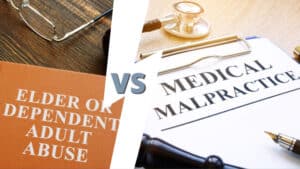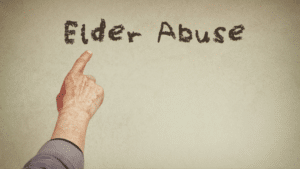If someone asked you to stand by while they assaulted an innocent stranger, you would probably protest. Depending on your situation, you might call the police, gather support to put a stop to the situation or intervene yourself. Abusers don’t often announce their intentions in advance. It is not always clear to people how they should react when confronted by an unpleasant situation. Elder abuse is a massive problem that often occurs with the knowledge, and sometimes cooperation, of people who should care enough to prevent it. While it can be difficult to know the perfect response, it is important to do something, anything, rather than just sit by while a vulnerable person is harmed.
Part of the problem is that elder abuse is often perpetrated by family members, friends and professionals paid to safeguard the elderly person in question. In fact 90 percent of elder abuse cases are perpetrated by close acquaintances of the abused, frequently the adult children or spouse of the victim. People might feel reluctant to step in where the abuser is “close” to the victim.
Older people do not deserve less protection because they are vulnerable. Signs of violence, such as bruising, and signs of neglect, such as bed sores and malnutrition should be reported. Child abuse and domestic abuse used to be problems to be dealt with “in the home.” Violent assaults against women and children were ignored because they happened within family units. Our society is rightly progressing away from that, albeit too slowly. Similar progress needs to be made to protect the elderly.
Elder abuse is a significant problem that will only grow as the number of people over 65 increases. We, as a society, need to get a handle on stopping and better yet preventing elder abuse before it gets any worse.
Source: Huffington Post, “Why Elder Abuse Is Everyone’s Problem,” by Richard W. Besdine, M.D. 17 March 2015









